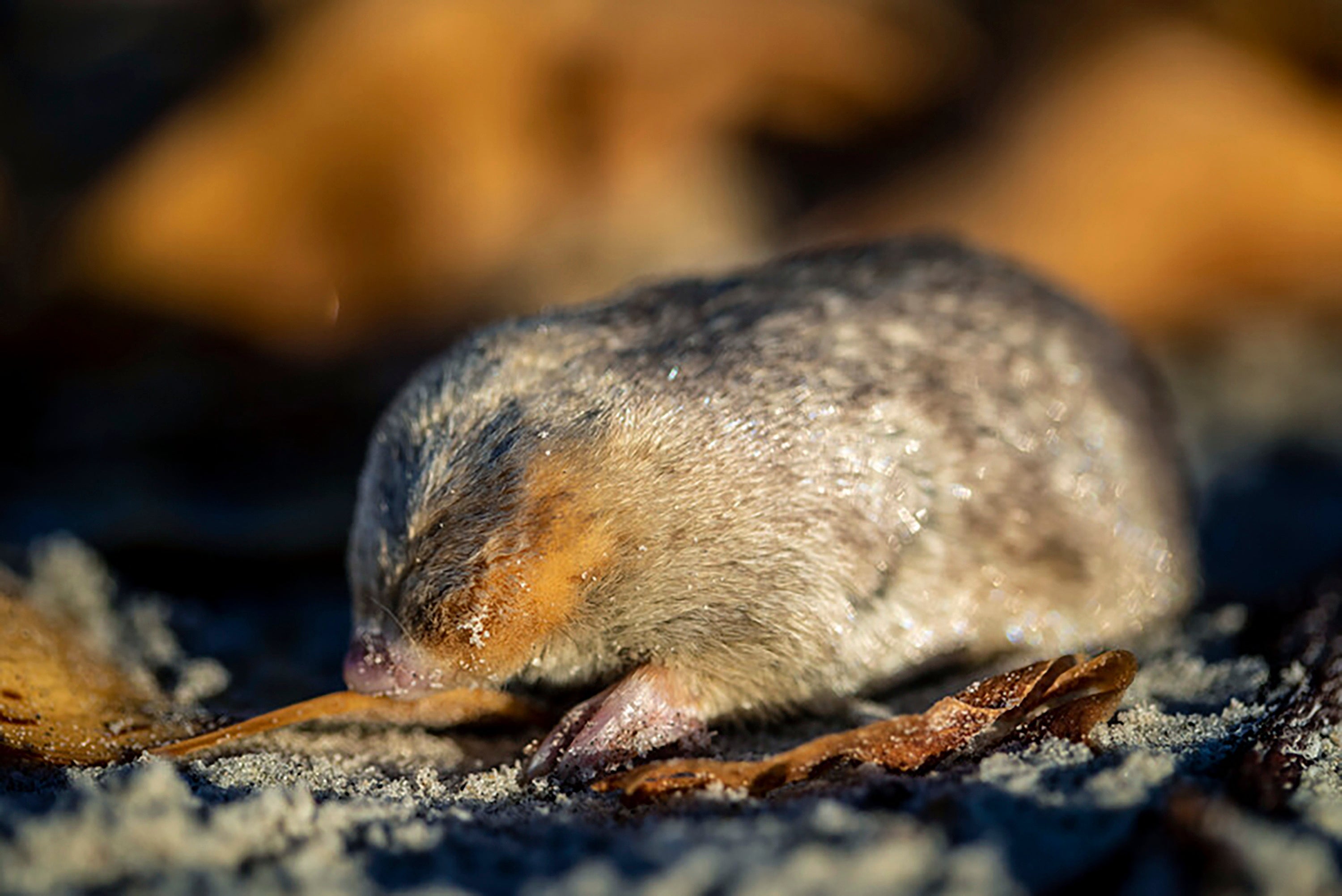Still alive! Golden mole not seen for 80 years and presumed extinct is found again in South Africa
Researchers in South Africa say they have rediscovered a mole species that has an iridescent golden coat and the ability to “swim” through sand dunes after it hadn't been seen for more than 80 years and was thought to be extinct

Your support helps us to tell the story
From reproductive rights to climate change to Big Tech, The Independent is on the ground when the story is developing. Whether it's investigating the financials of Elon Musk's pro-Trump PAC or producing our latest documentary, 'The A Word', which shines a light on the American women fighting for reproductive rights, we know how important it is to parse out the facts from the messaging.
At such a critical moment in US history, we need reporters on the ground. Your donation allows us to keep sending journalists to speak to both sides of the story.
The Independent is trusted by Americans across the entire political spectrum. And unlike many other quality news outlets, we choose not to lock Americans out of our reporting and analysis with paywalls. We believe quality journalism should be available to everyone, paid for by those who can afford it.
Your support makes all the difference.Researchers in South Africa say they have rediscovered a species of mole with an iridescent golden coat and the ability to almost “swim” through sand dunes after it hadn't been seen for more than 80 years and was thought to be extinct.
The De Winton's golden mole -- a small, blind burrower with “super-hearing powers” that eats insects -- was found to be still alive on a beach in Port Nolloth on the west coast of South Africa by a team of researchers from the Endangered Wildlife Trust and the University of Pretoria.
It had been lost to science since 1936, the researchers said.
With the help of a sniffer dog, the team found traces of tunnels and discovered a golden mole in 2021. But because there are 21 species of golden moles and some look very similar, the team needed more to be certain that it was a De Winton's.
They took environmental DNA samples -- the DNA animals leave behind in skin cells, hair and bodily excretions -- but had to wait until 2022 before a De Winton's DNA sample from decades ago was made available by a South African museum to compare. The DNA sequences were a match.
The team's research and findings were peer reviewed and published last week.
“We had high hopes, but we also had our hopes crushed by a few people,” one of the researchers, Samantha Mynhardt, told The Associated Press. “One De Winton’s expert told us, ‘you’re not going to find that mole. It’s extinct.’”
The process took three years from the researchers' first trip to the west coast of South Africa to start searching for the mole, which was known to rarely leave signs of its tunnels and almost “swim” under the sand dunes, the researchers said. Golden moles are native to sub-Saharan Africa and the De Winton's had only ever been found in the Port Nolloth area.
Two De Winton's golden moles have now been confirmed and photographed in Port Nolloth, Mynhardt said, while the research team has found signs of other populations in the area since 2021.
“It was a very exciting project with many challenges,” said Esther Matthew, senior field officer with the Endangered Wildlife Trust. “Luckily we had a fantastic team full of enthusiasm and innovative ideas, which is exactly what you need when you have to survey up to 18 kilometers (11 miles) of dune habitat in a day.”
The De Winton's golden mole was on a “most wanted lost species" list compiled by the Re:wild conservation group.
Others on the list that have been rediscovered include a salamander that was found in Guatemala in 2017, 42 years after its last sighting, and an elephant shrew called the Somali sengi seen in Djibouti in 2019, its first recorded sighting since 1968.
___
AP Africa news: https://apnews.com/hub/africa